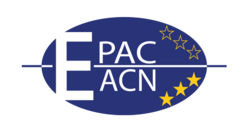Published on Monday, 23 April 2018 06:48
On 26 and 27 March 2018 in Bucharest, the National Anticorruption Directorate of Romania organized session II of the EPAC/EACN working group on the analysis of big data, with financial support by the Embassy of the Netherlands in Romania.
The objective was to bring together EPAC/EACN member representatives to exchange best practices and recommendations for the analysis of big data and the use of databases in anti-corruption investigations.
The EPAC/EACN Management Assembly had met in Vienna in February 2017, and agreed on the establishment of the WG "Analysis of big data, related legal aspects and the use of data bases", co-chaired by the Lithuanian Special Investigation Service and the Romanian National Anticorruption Directorate. The first meeting of this WG took place in Vilnius, Lithuania from 2 to 3 October 2017.
Following up discussions held during the first session of the working group in Lithuania, the WG in Bucharest addressed the challenge of managing big data sets in investigations into corruption cases, bringing together experts representing anti-corruption authorities and members of EPAC/EACN to share their experience and best practices in the field.
Representatives of anti-corruption authorities and police institutions from 11 EU member states and non–member states attended the WG (Austria, Belgium, France, Germany, Latvia, Lithuania, Poland, the Netherlands, Romania, Spain, and Ukraine), as well as representatives of OLAF and EUROPOL.
During the WG, speakers presented different software solutions used for big data analysis in investigating corruption offences, followed by a working exercise for drafting technical specifications for big data software solutions and lively discussions, creating the necessary framework for participants to share their experience and best practices in the big data field, and to give their input regarding the guidelines for analysis of big data and use of databases in anti-corruption investigations.
The main conclusion of the WG was that studying and actually employing advanced IT techniques during investigations will determine the improvement of methods and practices used. Another conclusion was that it was necessary to arrange for similar WG on a regular basis to continue the exchange of experience and best practices.
Guidelines resulting from the WG will be presented during the 18th EPAC/EACN Annual Professional Conference and General Assembly.
